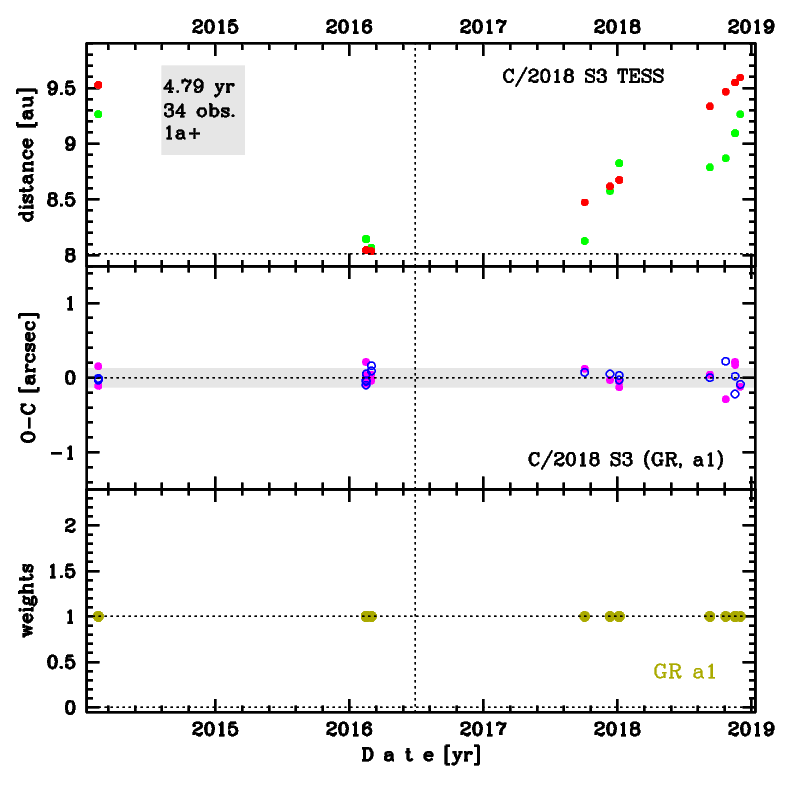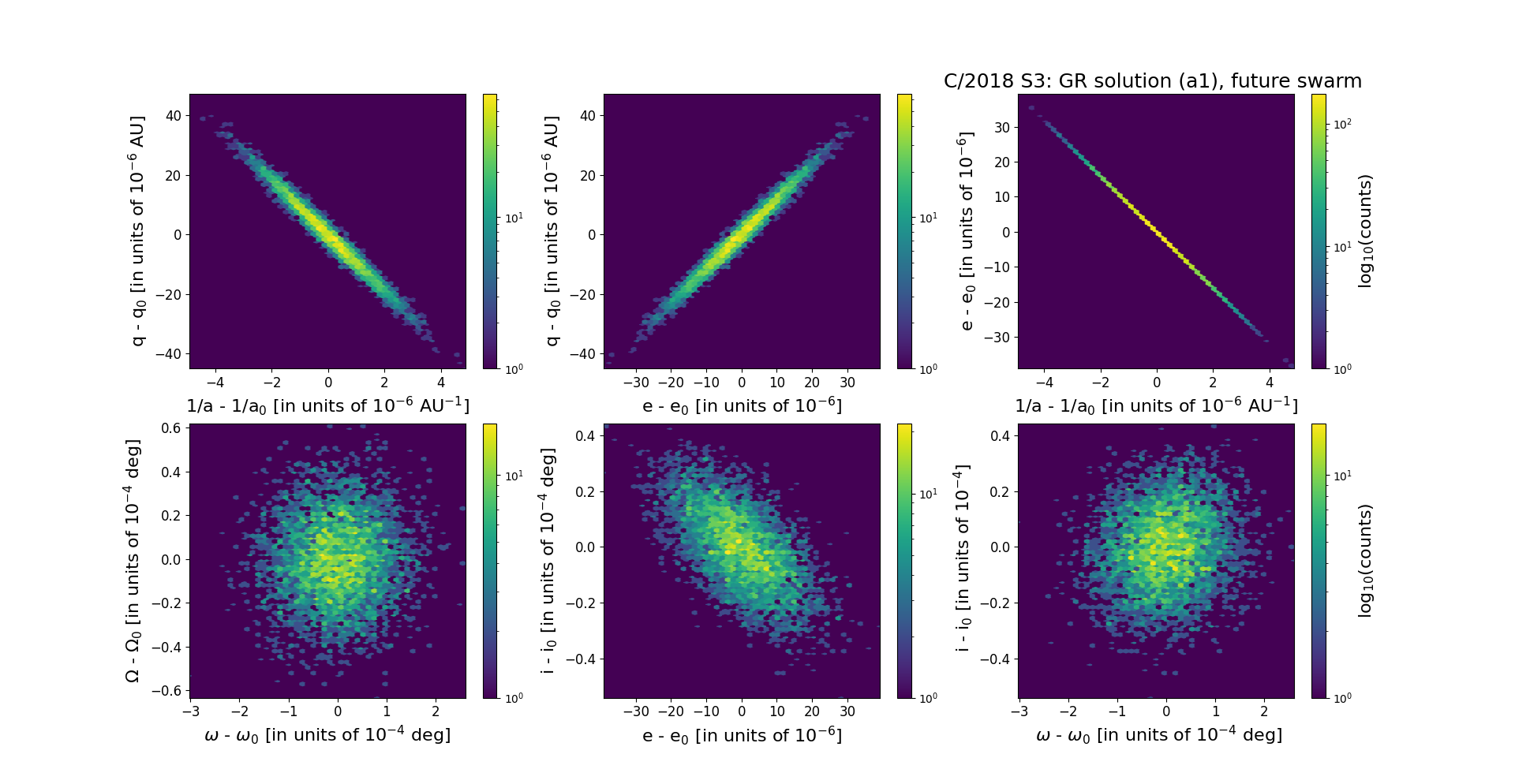C/2018 S3 TESS
more info
Comet C/2018 S3 was discovered on 22 September 2018 by Transiting Exoplanet Survey Satellite (TESS), about two years after its perihelion passage; later 13 observations were found going more than 4.5 yr back to 29 June 2014 (all by Cerro Tololo-DECam). This comet was observed only by TESS and Cerro Tololo-DECam, and was last seen on 1 December 2018 by Cerro Tololo-DECam.
The solution given here is based solely on the data from Cerro Tololo-DECam and span over 4.79 yr in a range of heliocentric distances: 9.53 au – 8.01 au (perihelion) – 9.59 au.
This Oort spike comet suffers tiny planetary perturbations during its passage through the planetary system that lead to a future orbit with greater semimajor-axis (see future barycentric orbit).
The solution given here is based solely on the data from Cerro Tololo-DECam and span over 4.79 yr in a range of heliocentric distances: 9.53 au – 8.01 au (perihelion) – 9.59 au.
This Oort spike comet suffers tiny planetary perturbations during its passage through the planetary system that lead to a future orbit with greater semimajor-axis (see future barycentric orbit).
| solution description | ||
|---|---|---|
| number of observations | 17 | |
| data interval | 2014 02 15 – 2018 12 01 | |
| data type | perihelion within the observation arc (FULL) | |
| data arc selection | entire data set (STD) | |
| range of heliocentric distances | 9.53 au – 8.01 au (perihelion) – 9.59 au | |
| detectability of NG effects in the comet's motion | NG effects not determinable | |
| type of model of motion | GR - gravitational orbit | |
| data weighting | NO | |
| number of residuals | 34 | |
| RMS [arcseconds] | 0.13 | |
| orbit quality class | 1a+ | |
| orbital elements (barycentric ecliptic J2000) | ||
|---|---|---|
| Epoch | 2327 04 13 | |
| perihelion date | 2016 06 29.16198696 | ± 0.00131577 |
| perihelion distance [au] | 7.99382456 | ± 0.00001177 |
| eccentricity | 0.99962937 | ± 0.00001001 |
| argument of perihelion [°] | 263.777940 | ± 0.000070 |
| ascending node [°] | 25.041680 | ± 0.000018 |
| inclination [°] | 78.422174 | ± 0.000013 |
| reciprocal semi-major axis [10-6 au-1] | 46.36 | ± 1.25 |
| file containing 5001 VCs swarm |
|---|
| 2018s3a1.bpl |

Upper panel: Time distribution of positional observations with corresponding heliocentric (red curve) and geocentric (green curve) distance at which they were taken. The horizontal dotted line shows the perihelion distance for a given comet whereas vertical dotted line — the moment of perihelion passage.
Middle panel(s): O-C diagram for a given solution (sometimes in comparison to another solution available in CODE), where residuals in right ascension are shown using magenta dots and in declination by blue open circles.
Lowest panel: Relative weights for a given data set(s).
Middle panel(s): O-C diagram for a given solution (sometimes in comparison to another solution available in CODE), where residuals in right ascension are shown using magenta dots and in declination by blue open circles.
Lowest panel: Relative weights for a given data set(s).
